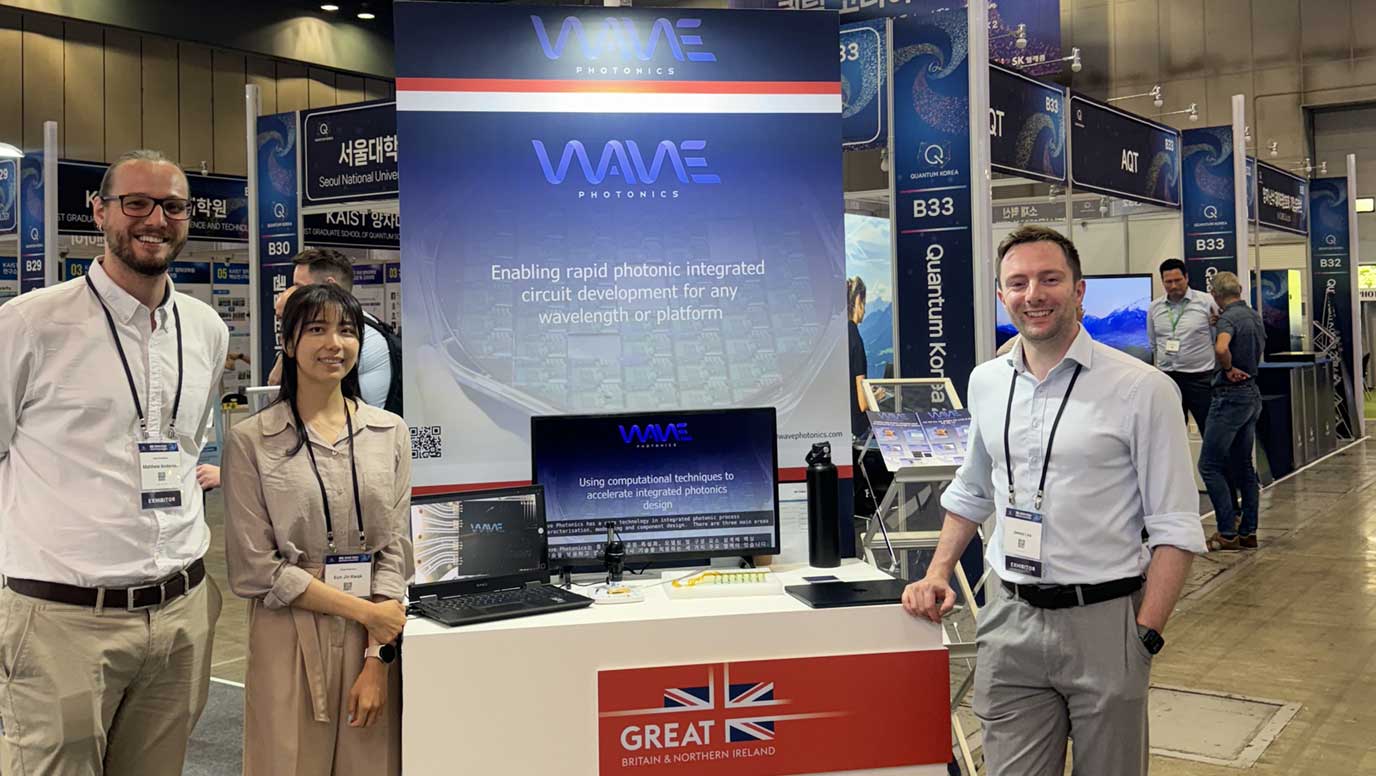Wave Photonics attracts Korean collaboration interest

Engagement engendered at the event for the UK’s five corporate representatives has led to more than 35 meetings with Korean corporations and R & D institutes to discuss future collaboration.
The meetings were secured as part of the UK-APAC Tech Growth Programme and each of the companies is now preparing to continue commercial talks with the organisations it met at the global showcase for quantum computing innovation.
Wave Photonics is focused on design for integrated photonics, a technology that uses scalable and high-volume semiconductor fabrication processes to make chips that use light. CEO James Lee said: “The meetings secured for us at Quantum Korea enabled us to learn about the Korean quantum ecosystem in a way that just isn’t possible remotely.
“What’s most exciting is the prospect that the country’s phenomenal semiconductor and telecoms capability can be harnessed for integrated photonics development, facilitating the mass manufacture of quantum technologies which exploit light – which is nearly all of them.”
The UK-APAC Tech Growth Programme is delivered on behalf of the Government by international business development consultancy Intralink. Companies can apply to participate here.
According to specialists at Intralink delivering the programme, the Korean government has recently earmarked £14 billion for R & D projects spanning artificial intelligence, bioengineering and quantum computing. This investment demonstrates that the market for these technologies will grow in the years ahead, spurring Korean corporations to secure further technology collaborations and expertise exchanges with overseas companies, including those from the UK.
This success for UK tech at Quantum Korea follows SEMICON Korea in February, during which seven UK companies with technologies in the semiconductor sector embarked on discussions with potential customers and partners. They included Cambridge duo Paragraf and Pragmatic.
And, in June, 10 UK tech scaleups with offerings in the net zero building field presented their technologies to one of Japan’s largest construction corporations, Shimizu, in another event organised by the UK-APAC Tech Growth Programme. As a result, four of the participating companies are now embarking on more detailed discussions with Shimizu.
The other four UK companies present at Quantum Korea 2024 were:
• Cavero Quantum – a cybersecurity spin-out from Leeds University offering a quantum-powered cloud communications platform with a scalable web service application programming interface (API) and security protection.
• Element Six – a world leader in the design, development and production of synthetic diamond and tungsten carbide advanced material solutions for sectors including aerospace, mining, semiconductors and photonics.
• Oxford Instruments – a provider of hi-tech products and services to the world's leading industrial companies and scientific research communities
• Quantum Software Lab – a cutting-edge research facility for quantum software development and end-user applications hosted by University of Edinburgh with the UK National Quantum Computing Centre.
All five companies are participating in the UK-APAC Tech Growth Programme, which provides free and subsidised support to technology companies aspiring to enter one or more of 11 markets: South Korea, Japan, Taiwan, Singapore, Vietnam, Malaysia, the Philippines, Thailand, Indonesia, Australia and New Zealand.
In June this year, Wave Photonics received £4.5 million to develop on-chip photonics designs for quantum technologies, sensors, and data centre applications in a round led by UK Innovation & Science Seed Fund and Cambridge Enterprise with participation from the Redstone and QAI Ventures’ Quantum Fund, Kyra Ventures, and Deeptech Labs.

